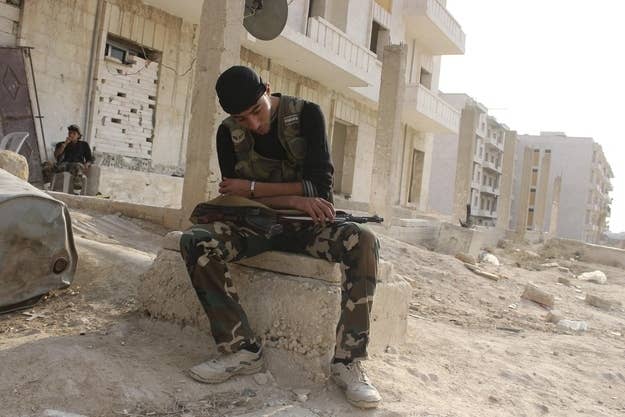
ISTANBUL, Turkey — The United States has suspended delivery of non-lethal aid into northern Syria due to concerns over gains by Islamist rebels there, a U.S. official said on Tuesday.
The suspension halts direct U.S. assistance to Syria's rebel-held north, long an opposition stronghold and the focal point of U.S. efforts to support the country's moderate opposition. The affected aid includes supplies such as food and medicine, as well as vehicles and communications equipment.
The official said that humanitarian aid — which the U.S. channels through international and non-governmental organizations — will continue "and is not impacted by this suspension."
The suspension comes in response to a worrisome development for the Free Syrian Army, or FSA, the moderate rebel coalition backed by the U.S. and its western allies. The FSA has been losing ground steadily to hardline rebel factions, including local affiliates of Al-Qaeda and a powerful rival coalition called the Islamic Front. On Friday, Islamic Front fighters overtook several key FSA headquarters and warehouses in Atimeh, a town near the Turkish border, dealing the FSA a bracing blow — and drawing alarm from the U.S.
"We are obviously very concerned," the U.S. official said in emailed comments, requesting anonymity because of the issue's sensitivity. "As a result of this situation, the United States has suspended all further deliveries of non-lethal assistance into northern Syria."
The official added that the U.S. is working with FSA leadership — known as the Supreme Military Council, or SMC — and its leader, Gen. Selim Idriss, "to inventory the status of U.S. equipment and supplies provided to the SMC." This suggests that the U.S. is concerned that material it has provided to the FSA will be used by the Islamic Front instead.
The official said it was "too early to say what this means in the long-term," leaving the door open for aid deliveries to resume in the future. "We are gathering the facts and consulting with friends of the Syrian opposition on next steps in support of the Syrian people," the official said.
The official did not say whether lethal assistance to the FSA — in the form of light weapons provided by the CIA, which began arriving on a small scale this fall — would be affected by the suspension.
But one opposition official involved in channeling U.S. assistance to the FSA said he believed lethal assistance would be affected by the suspension as well.
He also worried that news of the suspension and the rebel infighting that prompted it could impact deliberations by U.S. lawmakers on funding for assistance to the Syrian opposition. Congress has been expected to approve an increase in those funds soon. "The timing couldn't be worse," he said.
U.S. assistance to the Syrian opposition is far outpaced by the arms and money provided by more ardent backers such as Saudi Arabia and Qatar. And it falls well short of the military support rebels have long said they need to prevail against Syrian President Bashar al-Assad.
But the suspension, in addition to lost supplies, also sends a damning message about the FSA, said Ammar Abdulhamid, a veteran opposition activist — showing it as increasingly overshadowed by its Islamist rivals and unable to control the flow of new supplies across the border. "The Islamists are going to use this to tell the population: We are the only ones who matter now," Abdulhamid said.
